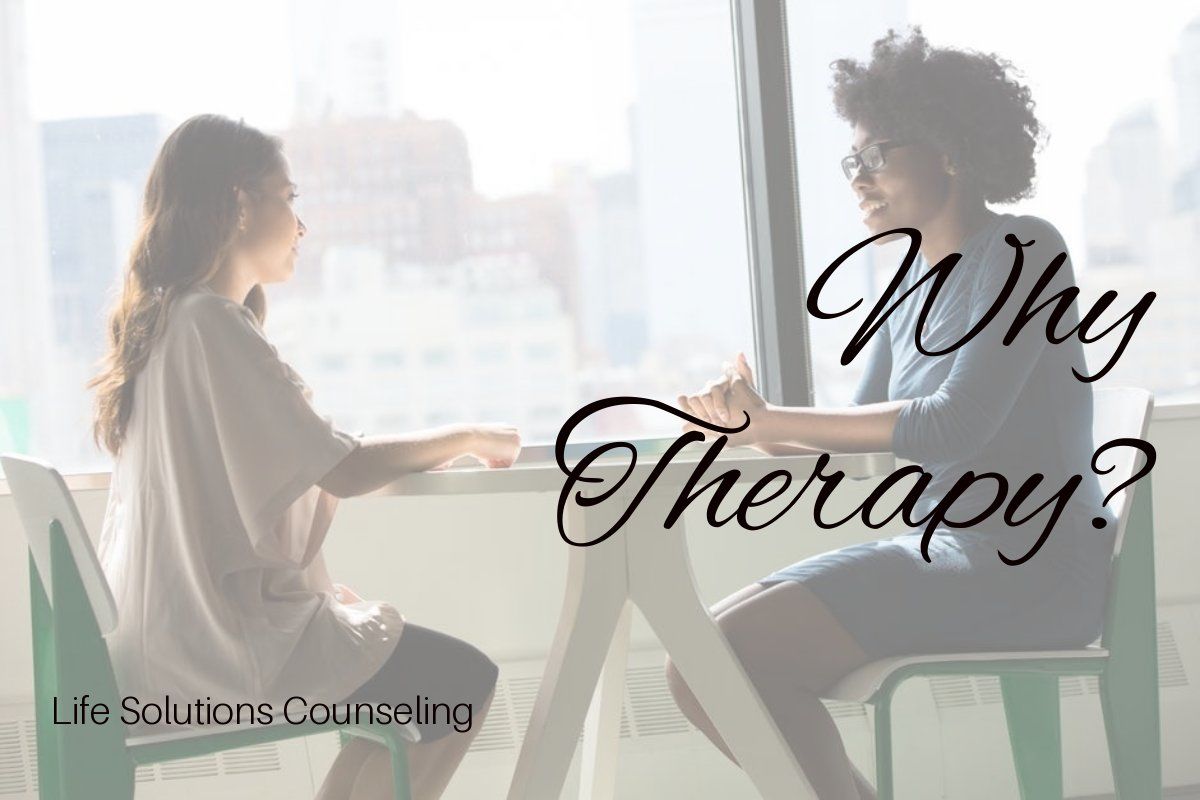Why Therapy? Can’t I Just Talk to a Friend?
Therapy has many different faces. Some of the most effective therapy happens when good friends get together to eat, drink, laugh, and cry. Sometimes we just need to hold a puppy, talk to our moms or complain to our hairdresser. And then other times we need good old fashioned psychotherapy. That said, most people are nervous to see a counselor or therapist. It can be especially difficult if it is your first time seeking therapy or if you had been disappointed by previous experiences. So, I thought it may be helpful for you to know what to expect if you come to see me at Life Solutions Counseling. ,

What Does Therapy at Life Solutions Counseling Look Like?
The first session can be stressful and awkward for many clients, so I want you to know that I am aware of this and I will make it as relaxing and pleasant as possible. You can expect a casual conversation, with me asking you questions and listening intently to your concerns. By the end of the first session I will share with you my observations and suggestions and we will look together at a tentative plan and an approximate timetable for your therapy. Some people only need a few weeks while other may need more time to deal with difficult issues.
It is Crucial to Find the Right Counselor For You
Typically clients come to see me once a week, but even this is something we can talk about. I strongly believe that psychotherapy is a collaborative process, so we will work together from the beginning, to insure that you benefit from the experience. By the end of the first session most clients are clear whether my counseling style and the plan I recommend will be helpful or not. This is very important because one of the most healing factors of therapy is the relationship you have with your therapist. If the relationships is good he/she will know when to be a sympathetic ear and when to challenge you. You will also be more likely to be open and vulnerable because you will feel safe. As a result, this reparative relationship will allow you to grow, heal, and stick with the therapy process
8 Benefits of Counseling [Therapy]
- It helps in the long run: Therapy not only helps you work through current issues, but it helps you deal with future curveballs, because you develop the tools you need for certain scenarios in the future.
- It can heal physical symptoms. Psychological trauma can sometimes have debilitating physical effects, and in dealing with the one, you may also deal with the other.
- It helps your relationships: Not only do you learn to understand yourself better, but you get rid of the negative thoughts and assumptions about others when you process it with your counselor.
- It gives you clarity: Turning around thoughts in our heads get us nowhere, but once we talk about it, we start sorting it out and make sense of it.
- You feel less alone: Talking with a therapist can be a huge relief, because it may give you the support you need.
- It can heal your brain: Medication has been known to heal the imbalanced brain, but there are compelling evidence that talk therapy does the same.
- Stop the self-medicating: If we finally address what is really going on with us, we can let go of some of the things we use to self-medicate, and also get out of some destructive and abusive cycles.
- It’s a relationship: In counseling you get to practice the kind of relationship you want to have with someone else in the future; one of trust, compassion, and honestly.
THERAPY [COUNSELING] IS NOT FOR EVERYBODY, BUT FOR SOME PEOPLE IT CAN MAKE ALL THE DIFFERENCE.
Did some of these things resonate with you? Why don’t you give me a call so we can have our initial 10-15 minute conversation? Counseling may not be for everyone, but for some people it makes all the difference between struggling and thriving.

